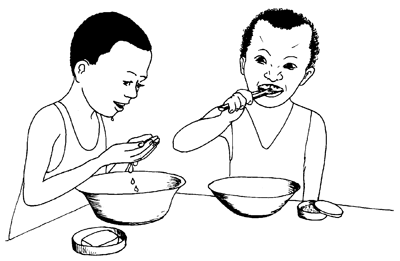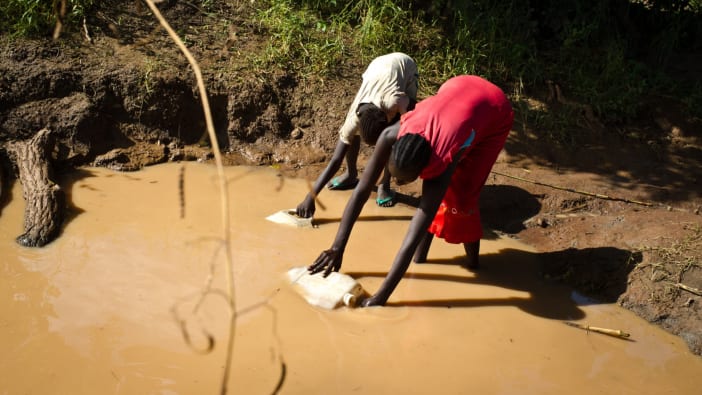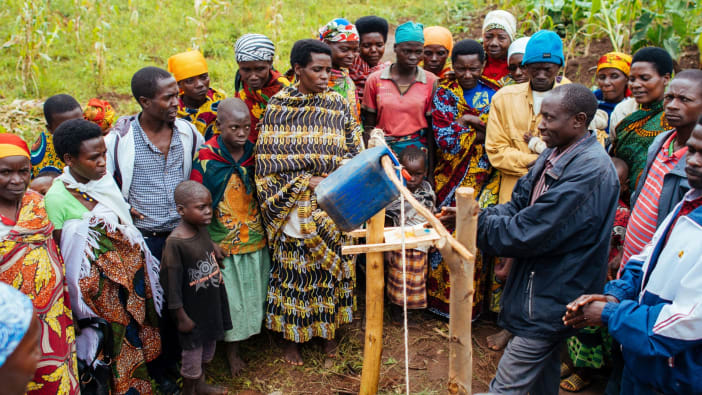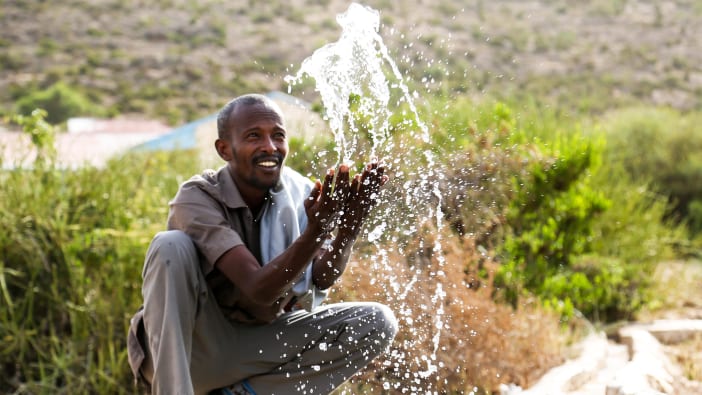We have already learned about the importance of keeping our hands clean. The rest of our body also needs to stay clean. Every day we should wash our face and body well with soap and water. This is particularly important for babies and young children. Regular washing helps prevents skin infections and removes sweat and dirt. Sticky mouths, noses and eyes attract flies that can cause eye infections and diarrhoea. If cloths are used to wash children, use a different cloth for each child to prevent any infection from spreading. Very little water is needed for washing and the waste water can be used in home gardens.
Our teeth should be cleaned at least twice a day. We can use a brush and toothpaste or a chewing stick and paste made by mixing half salt and half baking soda. Brush gently in all directions for at least two minutes each time.
Our fingernails provide good hiding places for dirt and microbes. They need to be kept clean and short.
Our clothes and bedding need regular washing too. Drying them in the sun on a bush or line helps to prevent pests such as lice and bed bugs.
Discussion
- Where do people in our community wash?
- Are people in our community able to wash as often as they want to?
- When water supplies are low, how do people manage to wash?
- How can we encourage mothers and carers to keep young children’s faces and hands clean?
- What local trees are useful to make chew sticks from?
- How easy is it to buy bicarbonate of soda? Is there an alternative that we can use to clean our teeth?
- Fruit trees planted near the home will benefit from all the waste water used in washing. How could we encourage people to use waste water in this way instead of throwing it away?










